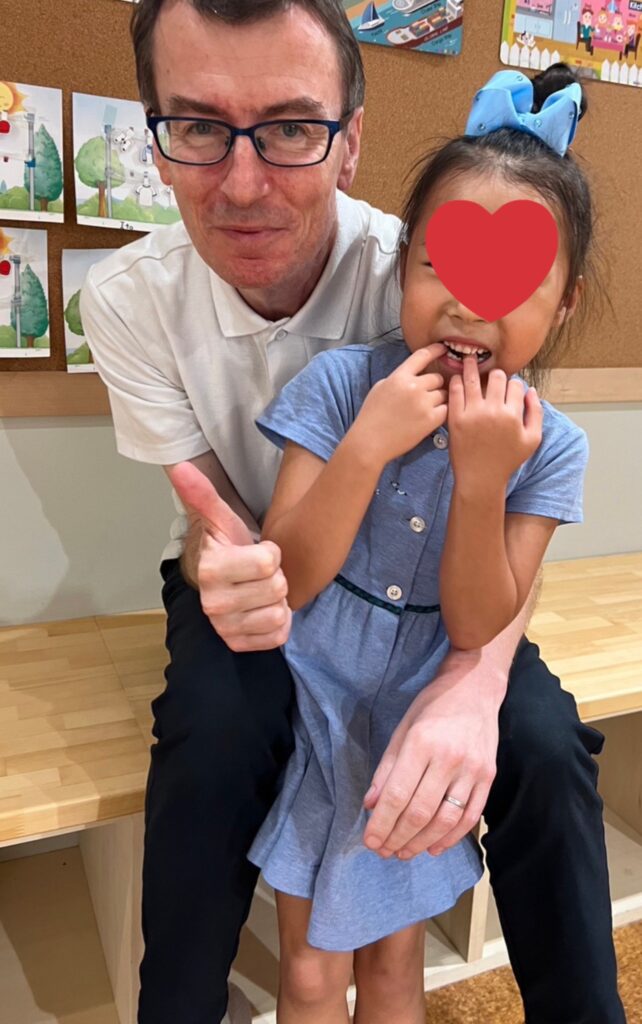「責める言葉」と「励ます言葉」

昨日、近所の公園を通りかかったら、ジュニア野球チームが練習をしていました。 コーチがある少年に指をさして、"なんでこんなこともできないんだ! "と叫んでいるのを見てショックでした。コーチはその少年が上手くできないことが腹立たしかったのでしょう。
少年はどんな気持ちだったのか、その表情を見ることはできませんでしたが、きっと悲しい気持ちになったのではと心が痛くなりました。
厳しいスポーツの世界ではコーチによるこのようなスタイルの教育を可能にしているのかもしれません。しかし、おおしろキッズ体操教室の先生たちは、このような言葉を使う必要性を感じていないし、言う姿も想像すらできません。
教室では、子どもたちの不適切な行動や行為に対して、もちろん先生として教育的な対応が必要です。しかし、子どもが取り組んでいることが上手くできなかった場合などには、先生は少しのアドバイスと励ましこそが大切で、責める必要は全くありません。
僕は「できないことを責める言葉」ではなく、「できるようになるための言葉」を使いたいと思います。
[Words of blame] and [Words of praise]
Yesterday I was walking past a park in my neighborhood where a junior baseball team was training. Just as I passed the thick of the action, I was startled to see the coach pointing his finger at a young boy in front of him, and scream “WHY can’t you DO this?!” He was obviously very upset with the boy’s approach to a specific technique.
The boy’s face was blocked by the adult, so I was unable to see his facial expression, but I suspect it wasn’t happy.
Perhaps the competitive nature of sport allows for this style of education by coaches, but I can’t even imagine any teacher at Oshiro Kids ever feeling the need to use this kind of language.
In the classroom, kids’ inappropriate or unfair behavior of course requires an education-based reaction from the teacher. However, a child’s lack of ability with a specific technique certainly needs the teacher to react with nothing but care and encouragement!
